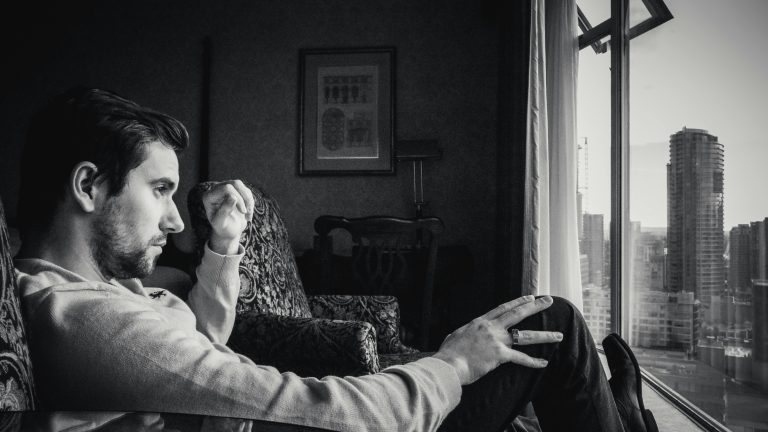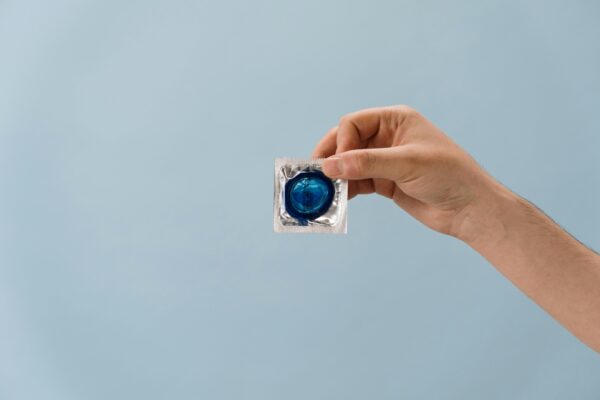Low libido, or a decreased interest in sexual activity, is a concern that can affect men of all ages. This complex issue can stem from a variety of physical, psychological, and emotional factors, making it crucial to address the root cause in order to find an effective solution. In this article, we explore the common causes of low libido in men, potential treatments, and lifestyle changes that can help reignite sexual desire.
Causes of Low Libido in Men
1. Hormonal Imbalances
One of the most significant contributors to low libido in men is hormonal imbalances. Testosterone, the primary male sex hormone, plays a crucial role in maintaining sexual desire. Low testosterone levels, also known as hypogonadism, can lead to a noticeable decrease in libido. This condition can be caused by aging, certain medications, or underlying health issues such as obesity, diabetes, and chronic stress.
2. Psychological Factors
Psychological factors are also key contributors to low libido. Depression, anxiety, and stress can significantly impact a man’s sexual desire. When the mind is preoccupied with worries or negative thoughts, it can be difficult to focus on or enjoy sexual activity. Moreover, unresolved relationship issues, such as lack of communication or intimacy, can further exacerbate the problem.
3. Medications and Medical Conditions
Certain medications can have side effects that reduce libido. For instance, antidepressants, antihypertensives, and antipsychotics are known to impact sexual function. Additionally, medical conditions such as heart disease, high blood pressure, and sleep disorders can affect energy levels and sexual desire.
4. Lifestyle Factors
Lifestyle choices can also contribute to low libido. Poor diet, lack of exercise, excessive alcohol consumption, and smoking can all negatively impact sexual health. A sedentary lifestyle and unhealthy eating habits can lead to weight gain, which is associated with lower testosterone levels and reduced sexual desire.
Recognizing the Symptoms of Low Libido
Men experiencing low libido often notice a decline in their interest in sex, which may be accompanied by a lack of sexual thoughts or fantasies. In some cases, this can lead to erectile dysfunction (ED) or difficulty achieving and maintaining an erection. Additionally, men may feel a reduced sense of self-esteem or confidence, particularly if their low libido affects their relationships.
Erectile Dysfunction Symptoms: A Comprehensive Guide to Understanding, Identifying, and Managing ED
Treatment Options for Low Libido
1. Hormone Replacement Therapy (HRT)
For men with low testosterone levels, hormone replacement therapy (HRT) can be an effective treatment. HRT involves the administration of testosterone through injections, patches, or gels to help restore normal hormone levels and improve libido. However, it’s important to consult with a healthcare provider to weigh the potential benefits and risks of HRT.
2. Psychological Counseling
Psychological counseling or therapy can be beneficial for men whose low libido is linked to mental health issues such as depression, anxiety, or stress. Cognitive-behavioral therapy (CBT), in particular, can help men identify and change negative thought patterns that may be contributing to their low libido. Couples counseling can also be effective if relationship issues are at the root of the problem.
3. Medication Review
If low libido is a side effect of medication, a healthcare provider may recommend adjusting the dosage or switching to an alternative drug. It’s important not to stop taking any prescribed medication without consulting a doctor first, as this could have serious health consequences.
4. Lifestyle Modifications
Making lifestyle changes is a natural and effective way to improve libido. Regular exercise, especially strength training, can boost testosterone levels and increase energy. Eating a balanced diet rich in fruits, vegetables, lean proteins, and healthy fats can support overall health and sexual function. Reducing alcohol intake and quitting smoking can also have positive effects on libido.
5. Herbal Supplements
Some men may find relief through herbal supplements that are believed to enhance libido. Ingredients like ginseng, maca root, and tribulus terrestris are commonly used in supplements designed to improve sexual function. However, it’s important to approach supplements with caution, as their effectiveness can vary and they may interact with other medications.
Preventing Low Libido
Preventing low libido involves maintaining a healthy lifestyle and addressing potential psychological or relationship issues before they become problematic. Regular physical activity, a nutritious diet, and stress management techniques such as meditation or yoga can help maintain sexual health. Open communication with a partner about sexual needs and concerns is also essential for a fulfilling sexual relationship.
Erectile Dysfunction Causes: Understanding the Underlying Factors
When to Seek Professional Help
If low libido persists despite lifestyle changes and self-care measures, it’s important to seek help from a healthcare professional. Endocrinologists, urologists, and sex therapists can provide specialized care and develop a treatment plan tailored to individual needs. Ignoring the problem can lead to further complications, including relationship difficulties and mental health issues.
Conclusion
Low libido in men is a multifaceted issue that requires a comprehensive approach to treatment. By understanding the potential causes and exploring various treatment options, men can regain their sexual desire and improve their overall quality of life. Whether through medical intervention, lifestyle changes, or psychological support, help is available for those experiencing low libido.
Studies and Sources
- Testosterone and Sexual Function: A study published in the Journal of Clinical Endocrinology & Metabolism found that low testosterone levels are directly linked to reduced sexual desire and erectile dysfunction in men. The study highlights the importance of maintaining healthy testosterone levels to support sexual health.
- Psychological Factors and Libido: According to research published in the Journal of Sexual Medicine, psychological factors such as stress, anxiety, and depression significantly impact libido in men. The study emphasizes the role of mental health in maintaining a healthy sexual appetite.
- Impact of Medications on Sexual Function: An article in the American Journal of Psychiatry discusses how certain medications, including SSRIs (selective serotonin reuptake inhibitors) used to treat depression, can lead to reduced libido. The study suggests reviewing medication regimens if low libido becomes an issue.
- Lifestyle and Sexual Health: A study from Harvard Health Publishing indicates that regular exercise and a healthy diet can improve testosterone levels and overall sexual function. The research supports lifestyle modifications as a natural approach to enhancing libido.
- Herbal Supplements and Libido: A review article in the Journal of Ethnopharmacology explores the use of herbal supplements like ginseng and maca root in improving sexual function. While the evidence is mixed, some studies suggest these supplements can be beneficial for men experiencing low libido.
These studies provide a foundation for understanding the complex factors that contribute to low libido in men and highlight the importance of a multifaceted approach to treatment.
FAQs: Low Libido in Men
Question: What are common causes of low libido in men?
Common causes include hormonal imbalances, such as low testosterone levels, psychological factors like stress, anxiety, and depression, as well as lifestyle factors like poor diet, lack of exercise, and excessive alcohol consumption.
Question: How can low testosterone affect sexual desire?
Low testosterone levels, also known as hypogonadism, can significantly reduce sexual desire and may lead to other symptoms like erectile dysfunction, fatigue, and loss of muscle mass.
Question: Can lifestyle changes improve libido?
Yes, lifestyle changes such as regular exercise, a healthy diet, adequate sleep, stress management, and reducing alcohol intake can help boost libido by improving overall health and hormone levels.
Question: What role do psychological factors play in low libido?
Psychological factors such as anxiety, depression, and chronic stress can have a profound impact on sexual desire. These factors can cause or exacerbate low libido and may require counseling or therapy to address.
Question: Are there medical treatments available for low libido?
Yes, medical treatments such as hormone replacement therapy (HRT) for low testosterone, medications, and psychological counseling are available and can be effective depending on the underlying cause of low libido.





